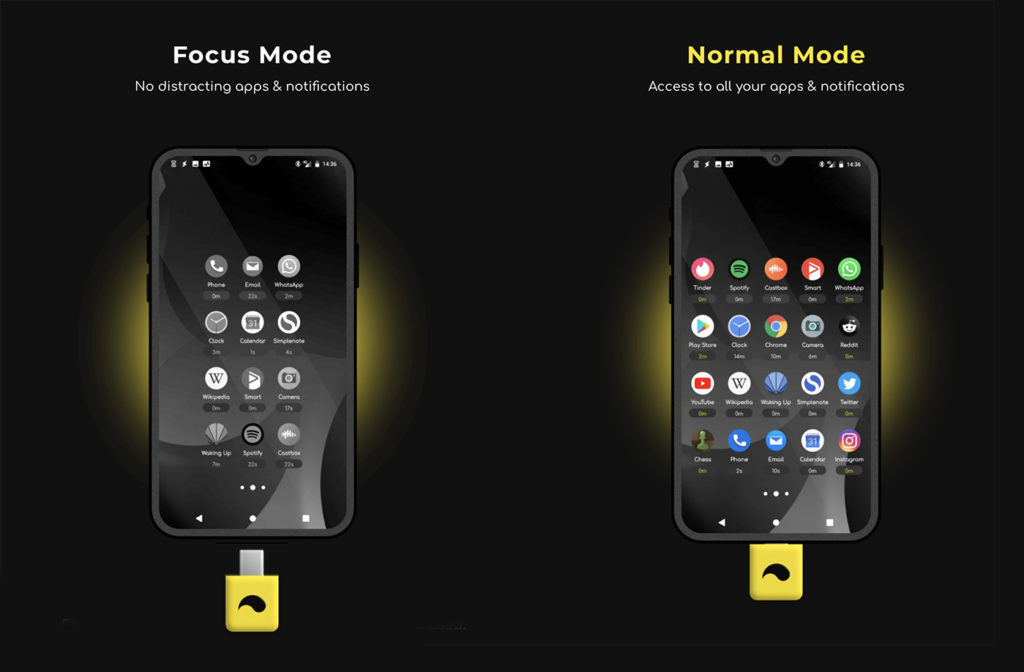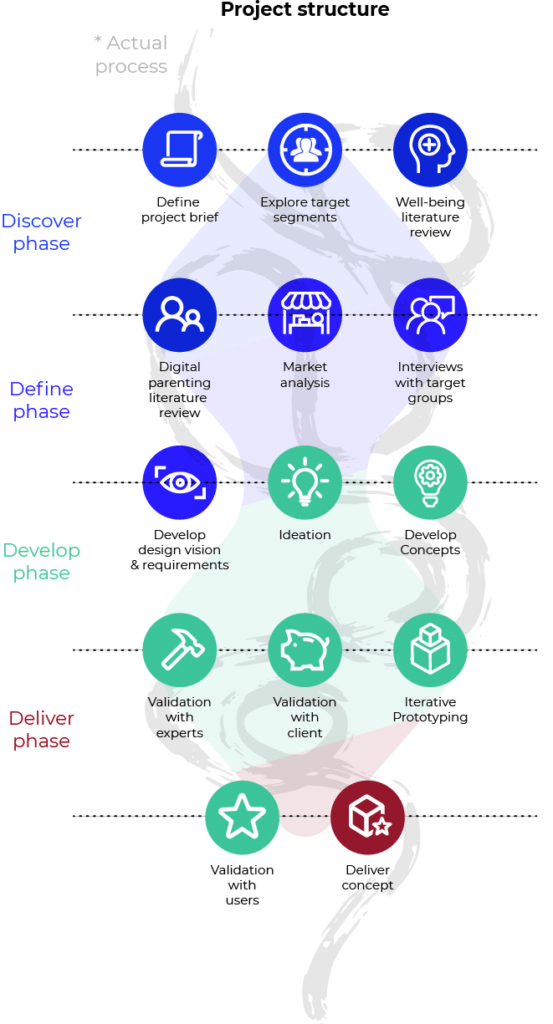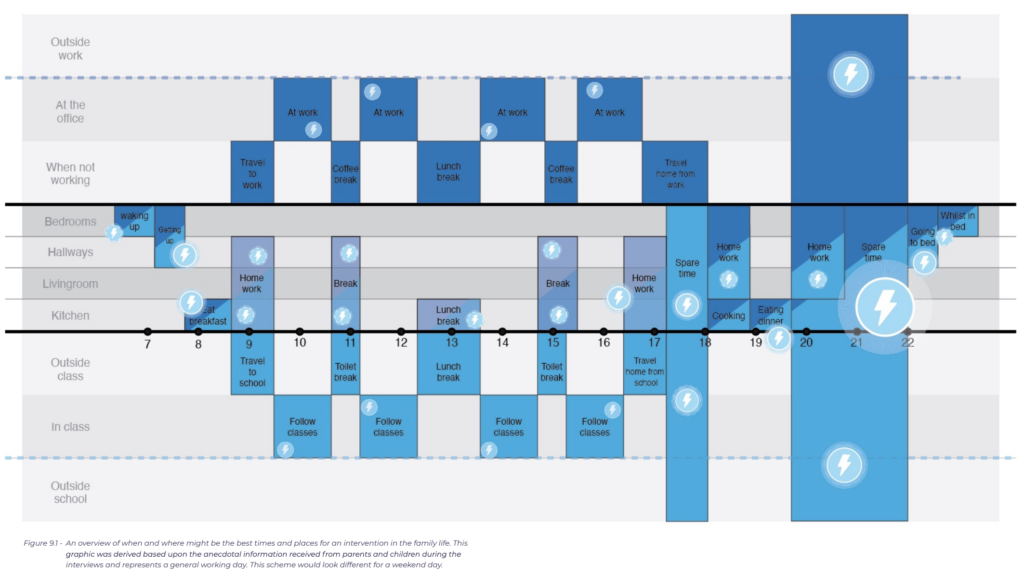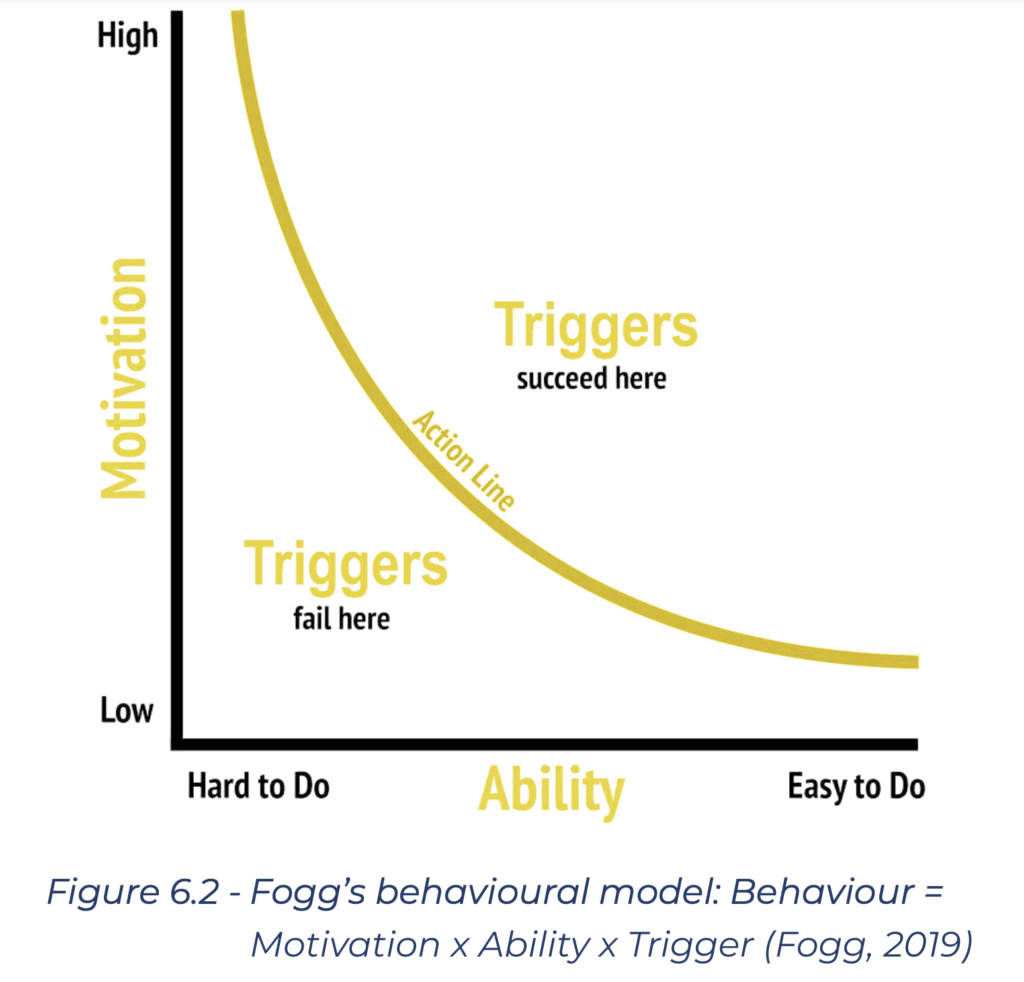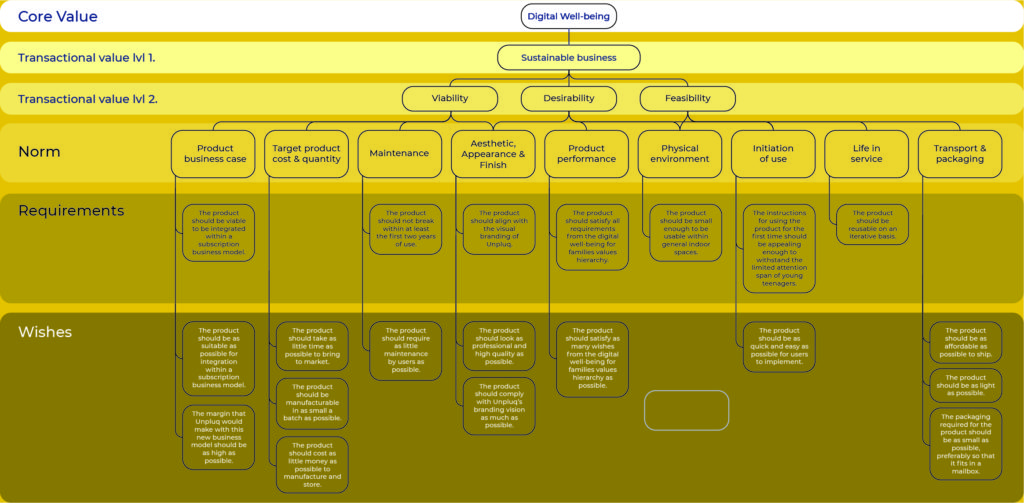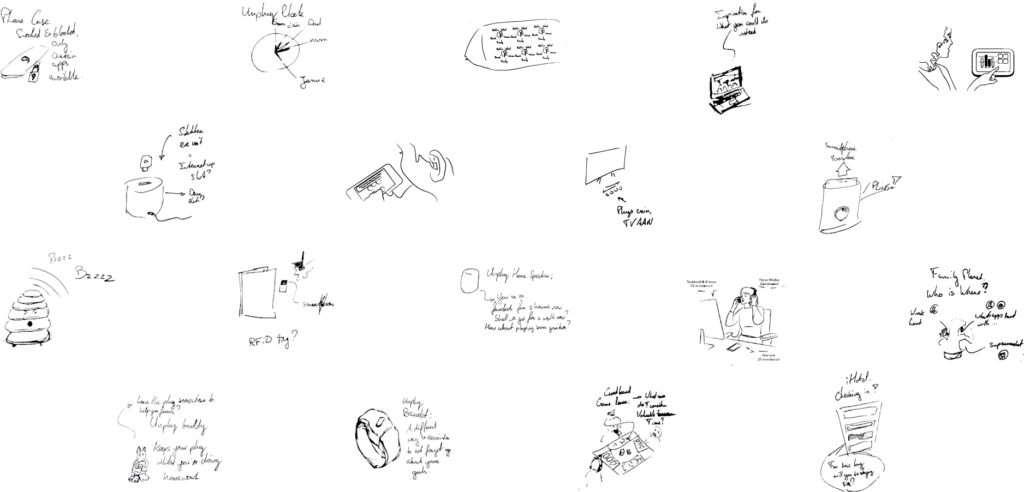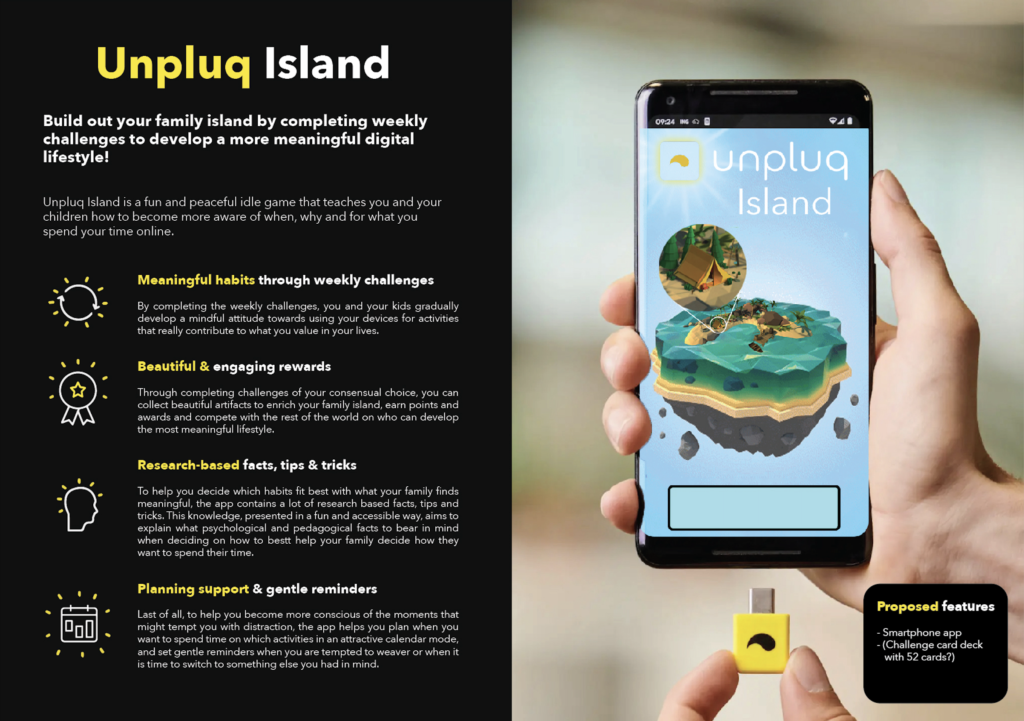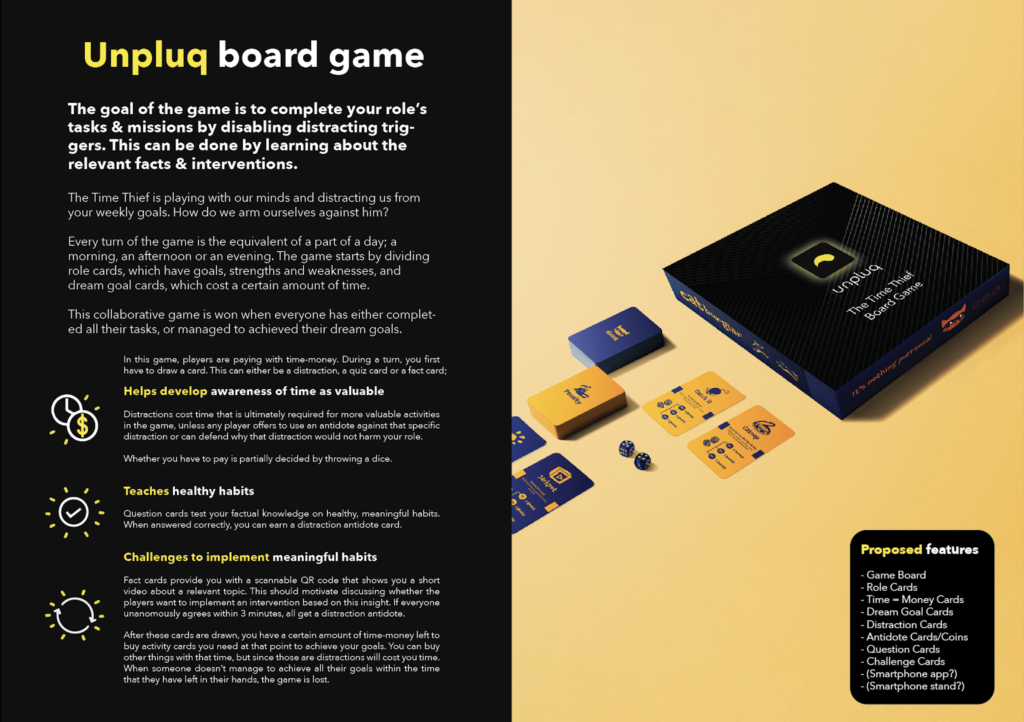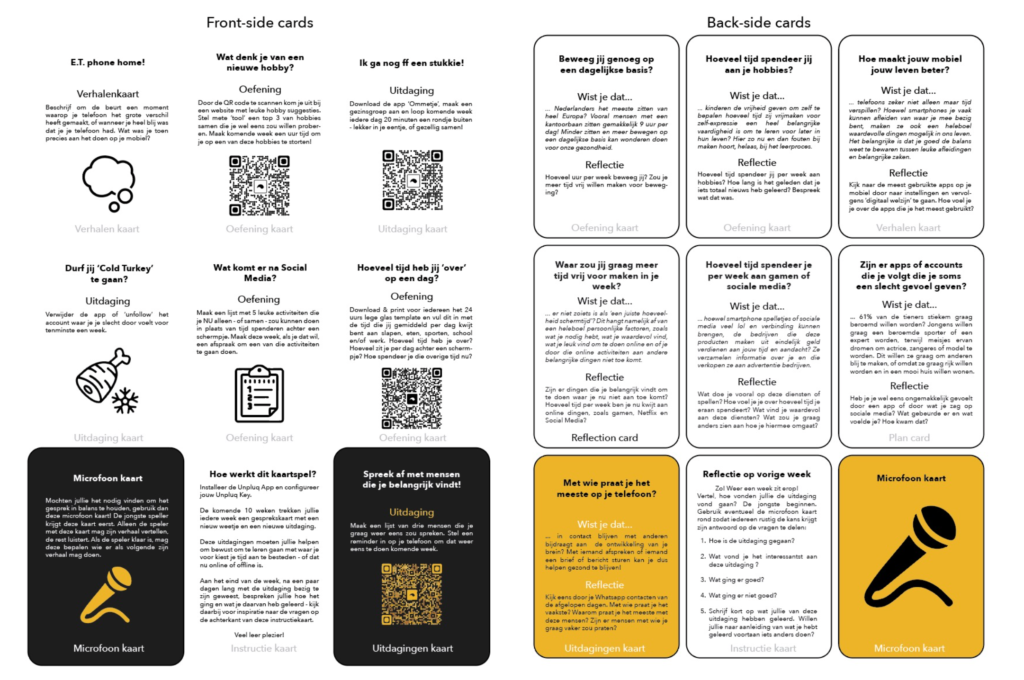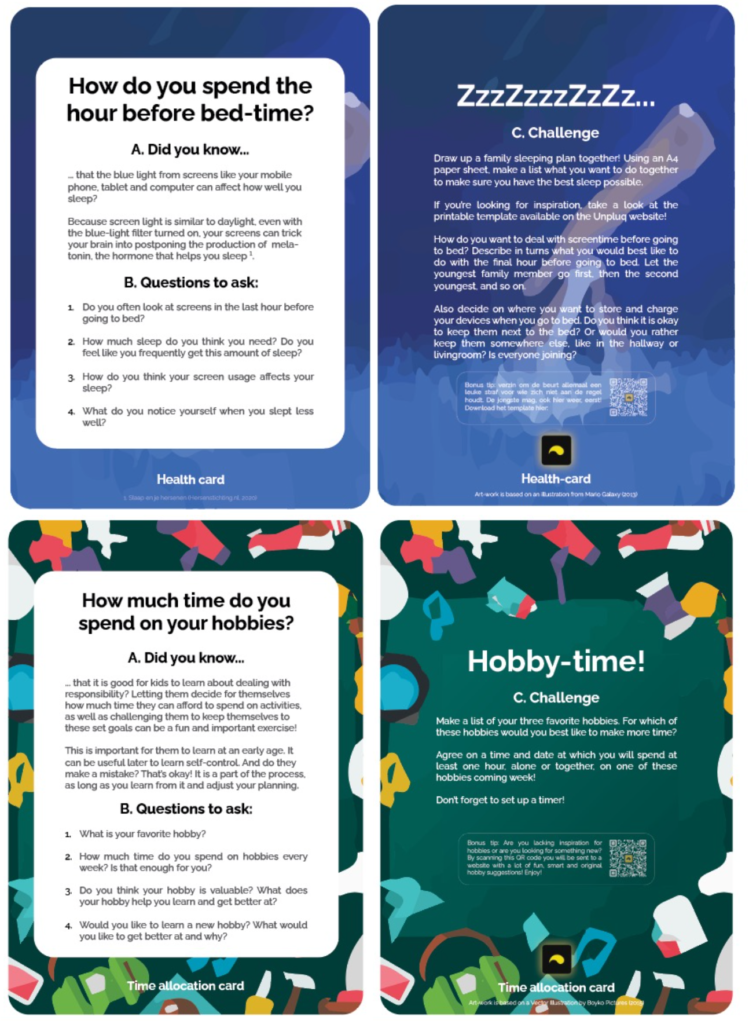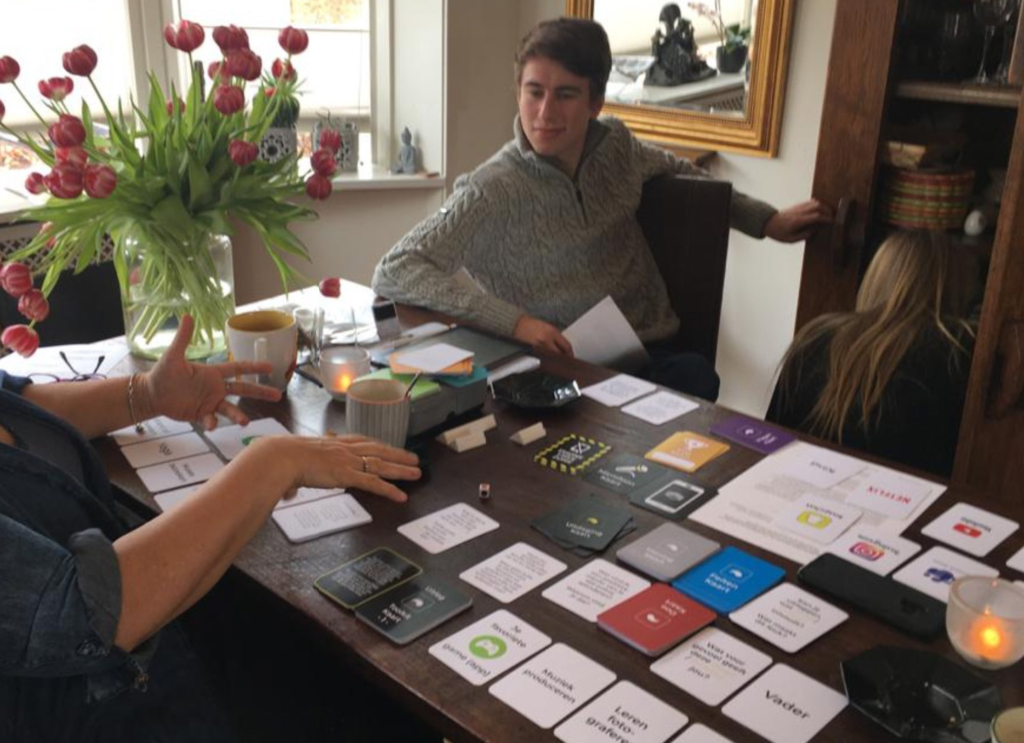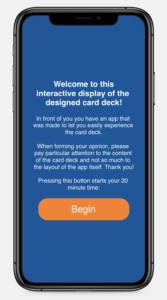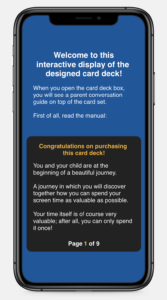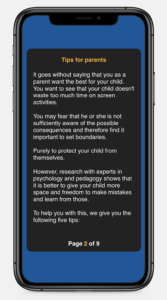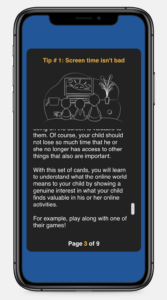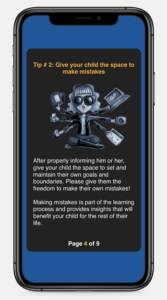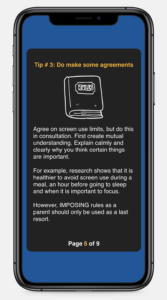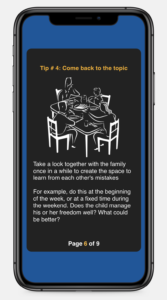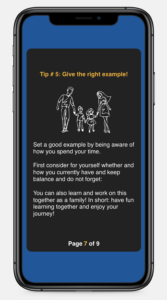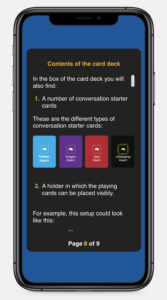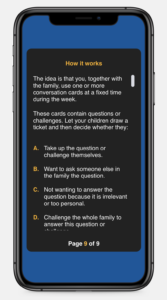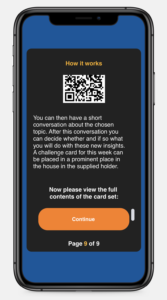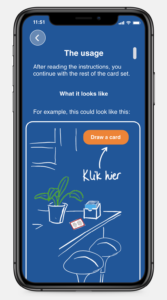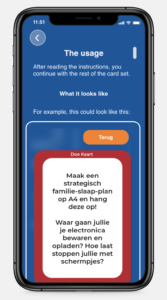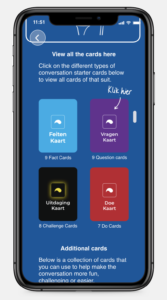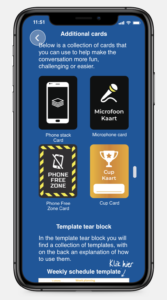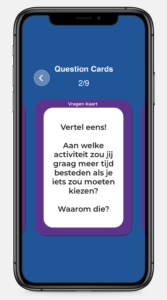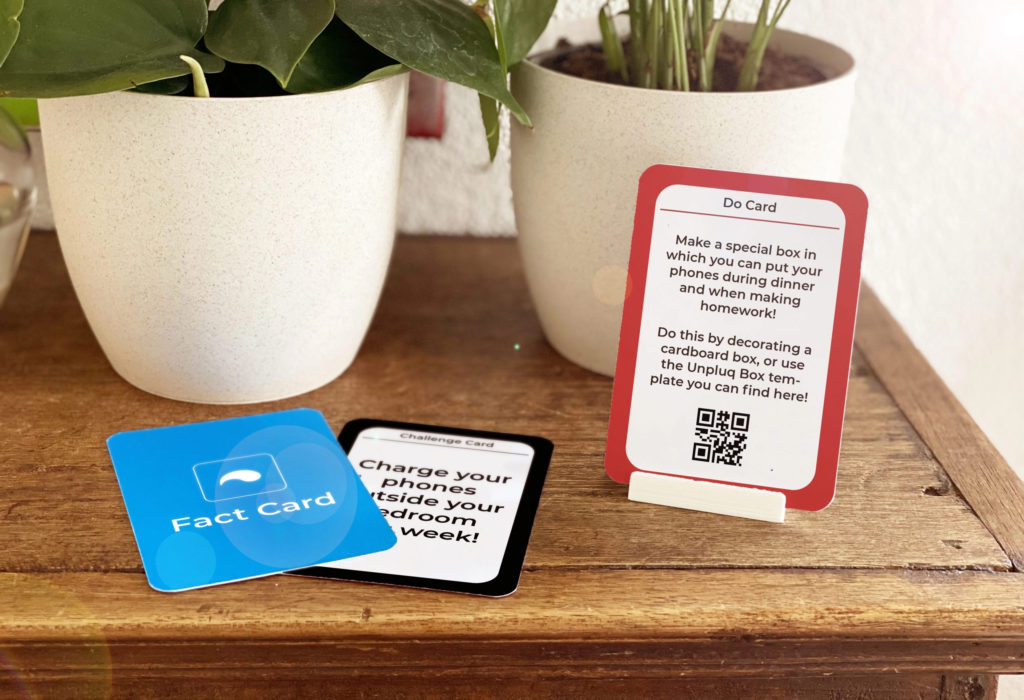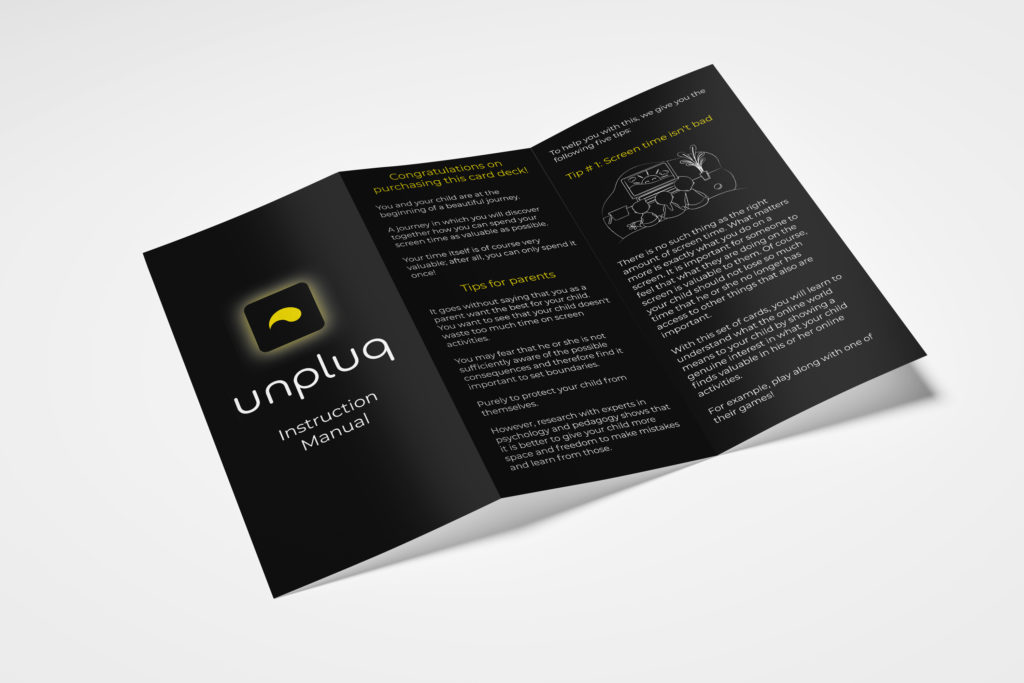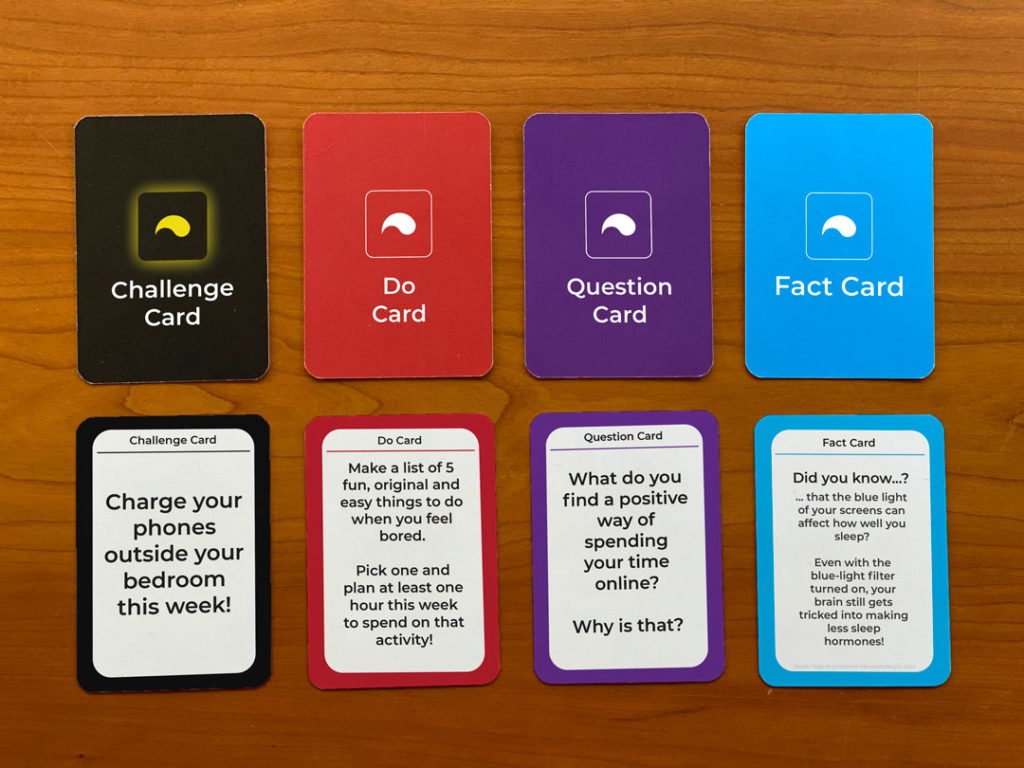Unpluq
Card Deck
Card Deck
The Unpluq Card Deck is designed to help parents and children figure out together how to spend their screentime in a more meaningful way, and through that improve their Digital Well-Being.
Unpluq
Card Deck
Card Deck
The Unpluq Card Deck is designed to help parents and children figure out together how to spend their screentime in a more meaningful way, and through that improve their Digital Well-Being.
Strategic Product Design
Unpluq Card Deck
2020 – 2021
Individual graduation project
5 days / week
7 months
Strategic Product Design
Unpluq
Card Deck
2020 – 2021
Individual graduation project
5 days / week
7 months
Project Video
Project description
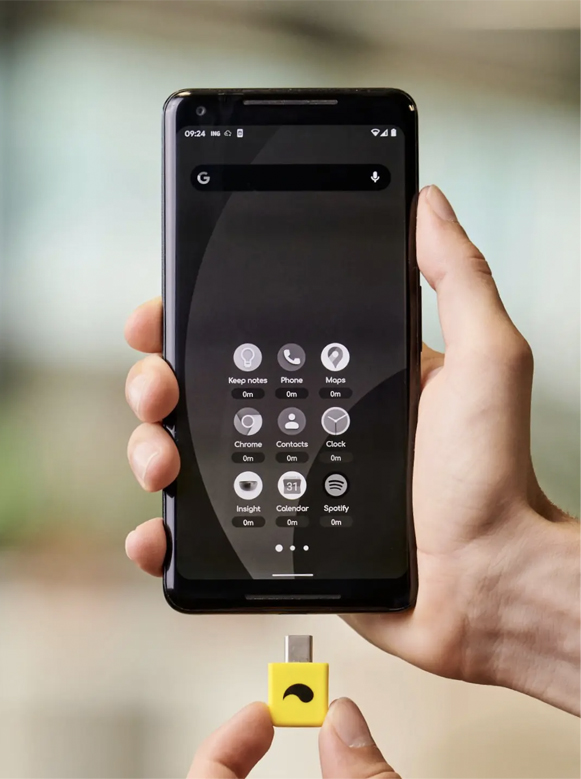
This project is about Digital Well-being, and how we can design technology that serves mankind, rather than unintentionally distracting us from the things that matter more.
Spending our time well is a topic very close to my heart. For humans, time is their most crucial resource, since once we use it we can never get it back. Therefore, for my MSc Strategic Product Design graduation project, I teamed up with the start-up Unpluq to learn more about how we can spend time in the most meaningful way.
I decided to devise a new design approach, particularly aimed at finding & understanding the requirements for improving well-being. To achieve this, I combined a design approach called Value Sensitive Design with the List of requirements methodology taught at Industrial Design Engineering.
As a result, I wrote my graduation thesis, titled:
“Families vs. Machines – On how a startup can help improve digital well-being in the family life.”
Unpluq’s aim is to help people disconnect from their smartphones and spend their time in more meaningful ways.
To achieve this, they developed the Unpluq Key. This is a USB-c key that fits in the charging ports of Android smartphones and helps by hiding all distracting apps when the key is unplugged, as shown below.
People use media to satisfy one or more of the following five goals.
I found that the best time for an intervention together for parents and children should be made to use together in the living room after school and work time.
According to Fogg (2019), behaviour change can be actively triggered if the motivation and ability are both high enough:
My research resulted in a new methodology I call the List of value requirements, which allowed me to develop a concrete list of requirements and wishes for improving well-being through design. This in turn allowed me to generate applicable concepts.
Concepts
First, I researched a lot of creative alternative solution directions.
In several sessions together with the client, I narrowed these solution opportunities down to three final concepts:
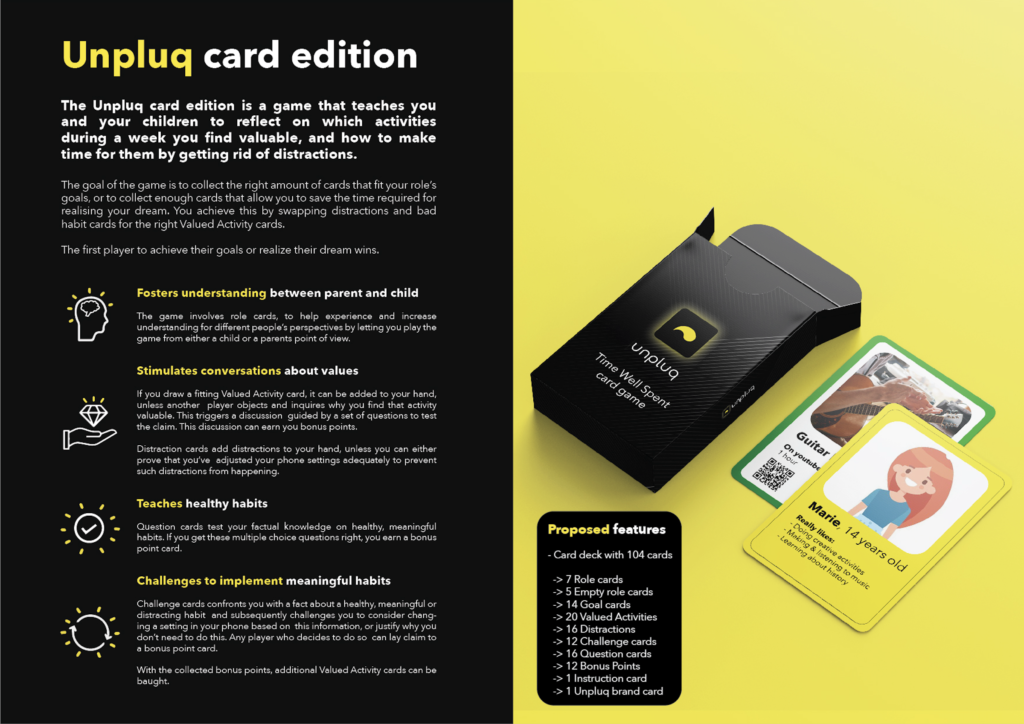
After selecting the card deck to continue with, I made several prototypes and validated those with the target groups.
To help families with learning to spend screentime in a more meaningful way, I ended up designing a playful card deck to guide parents & children in periodic discussions about their time allocation & screen time activities. This stimulates reflective thinking about what they intrinsically value.
An instruction manual included in the box would help the parents learn about the best practices to keep in mind when engaging in discussions about screen time with their partners and children. The information in this manual was written inspired by the literature research and in collaboration with experts in the field.
The card deck consists of four suits of cards, each containing a different action designed to elicit positive, constructive conversations and experiences.
By taking one card out of the stand every week, the family would gradually learn to become more aware of the relevant topics and habits to reflect on.
After having completely gone through all the cards, the parents could consider to take out one of the cards again if this seems relevant to their situation.
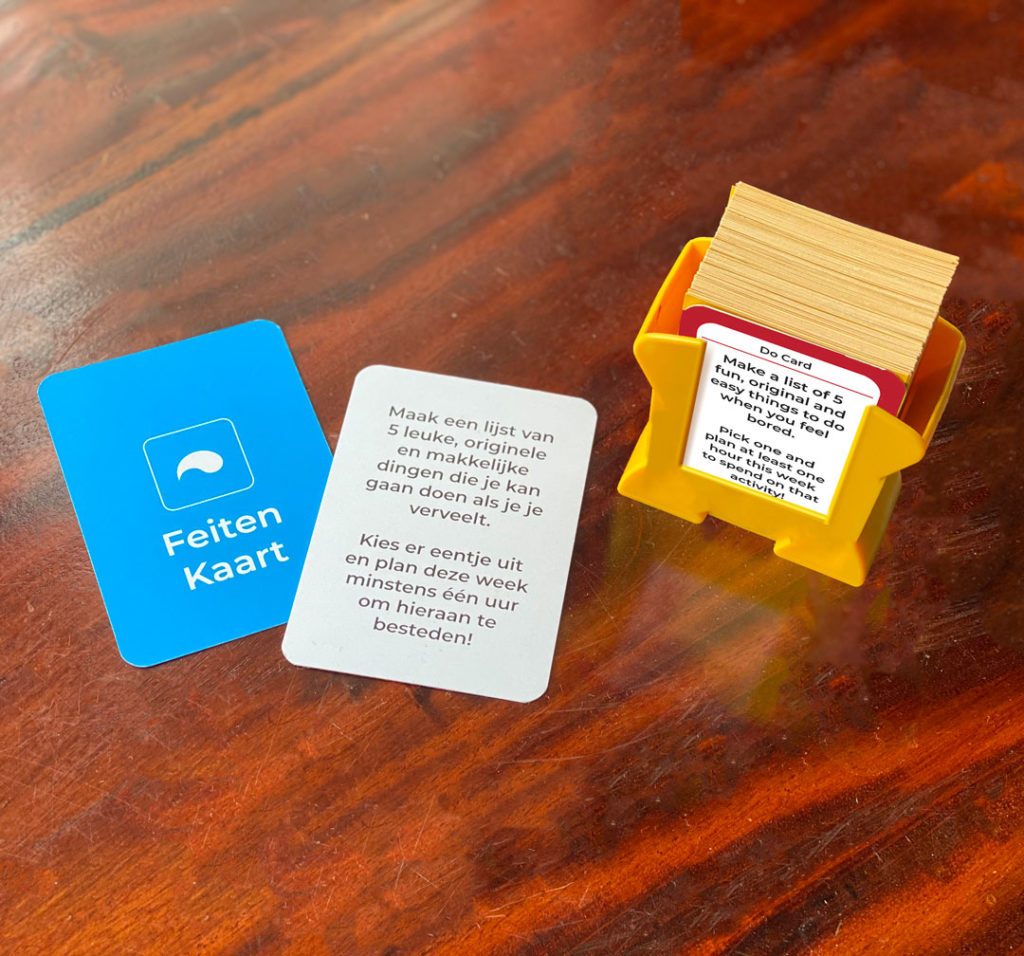
Digital Tools used
Blender
3d
Adobe Photoshop
Adobe Illustrator
Adobe InDesign
Adobe Premiere
Axure
o
Skills trained
Qualitative Interviewing
Design Research
Rapid Prototyping
CAD modelling
CGI Rendering
Design for production
Video editing
Digital Tools used
Blender
3d
Adobe Photoshop
Adobe Illustrator
Adobe InDesign
Adobe Premiere
Axure
o
Skills trained
Qualitative Interviewing
Design Research
Rapid Prototyping
CAD modelling
CGI Rendering
Design for production
Video editing
Strategic Product Design
Unpluq Card Deck
2020 – 2021
Individual graduation project
5 days / week
7 months
About the client
Project Video

This project is about Digital Well-being, and how we can design technology that serves mankind, rather than unintentionally distracting us from the things that matter more.
Spending our time well is a topic very close to my heart. For humans, time is their most crucial resource, since once we use it we can never get it back. Therefore, for my MSc Strategic Product Design graduation project, I teamed up with the start-up Unpluq to learn more about how we can spend time in the most meaningful way.
As a result, I wrote my graduation thesis, titled:
“Families vs. Machines – On how a startup can help improve digital well-being in the family life.”
Project approach
Unpluq is a startup that was founded back in 2019 by Tim Smits & Jorn Rigter. Their aim is to help consumers consciously disconnect from their smartphones once in a while and spend their time in more meaningful ways.
To achieve this, they developed a small USB-c stick called the Unpluq Key. This USB-c key fits in the charging ports of Android smartphones and helps by hiding all distracting apps when the key is unplugged, as shown below.
My approach
In my research, I focussed on digital wellbeing and good digital parenting practices and looked at how I could help Unpluq appeal even more to a new market: Parental Control.
I decided to devise a new design approach, particularly aimed at finding & understanding the requirements for improving well-being. To achieve this, I combined a design approach called Value Sensitive Design with the List of requirements methodology taught at Industrial Design Engineering.
My research
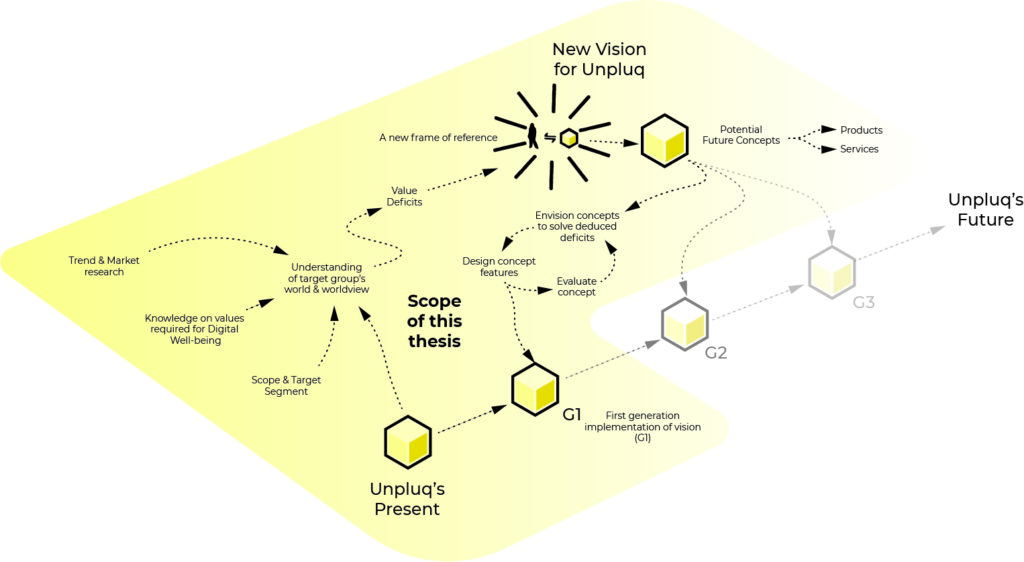
People use media to satisfy one or more of the following five goals.
I found that the best time for an intervention together for parents and children should be made to use together in the living room after school and work time.
According to Fogg (2019), behaviour change can be actively triggered if the motivation and ability are both high enough:
My research resulted in a new methodology I call the List of value requirements, which allowed me to develop a concrete list of requirements and wishes for improving well-being through design. This in turn allowed me to generate applicable concepts.
Final Design – the Unpluq Card Deck
To help families with learning to spend screentime in a more meaningful way, I ended up designing a playful card deck to guide parents & children in periodic discussions about their time allocation & screen time activities. This stimulates reflective thinking about what they intrinsically value.
The card deck consists of four suits of cards, each containing a different action designed to elicit positive, constructive conversations and experiences.
By taking one card out of the stand every week, the family would gradually learn to become more aware of the relevant topics and habits to reflect on.
After having completely gone through all the cards, the parents could consider to take out one of the cards again if this seems relevant to their situation.

Digital Tools used
Blender
3d
Adobe Photoshop
Adobe Illustrator
Adobe InDesign
Adobe Premiere
Axure
o
Skills trained
Qualitative Interviewing
Design Research
Rapid Prototyping
CAD modelling
CGI Rendering
Design for production
Video editing
Digital Tools used
Blender
3d
Adobe Photoshop
Adobe Illustrator
Adobe InDesign
Adobe Premiere
Axure
o
Skills trained


